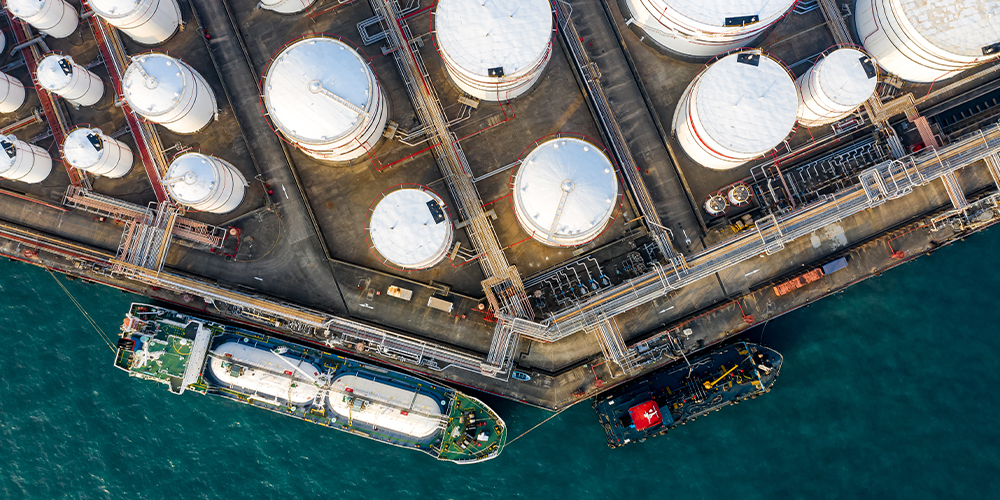
Dubai Drawing Traders from More Mature Commodity Hubs
The United Arab Emirates (UAE), with a particular focus on Dubai, is fast becoming a prominent hub for commodities trading. Its strategic location between East and West, combined with efforts to diversify its economy, has positioned the UAE as a key player in the global commodities market. With robust policies supporting commodities trading and favourable…
The UAE, recognizing the finite nature of its oil resources, has actively pursued economic diversification. Dubai, in particular, has led the way in transforming from an oil and gas hub to a centre for various industries. The city’s ambition to become a commodities hub is supported by its role as a transhipment hub, excellent air freight, and port infrastructure, and a favourable business environment. Furthermore, Dubai maintains stability, consistency, transparency, and pragmatism in its geopolitical stance, making it an attractive destination for businesses seeking a non-aligned and business-friendly location. Competitive advantages in financing, common law-based legal frameworks, tax efficiency, and ease of doing business further enhance Dubai’s appeal, enticing organizations and startups to establish a presence in the city.
Dubai’s success as a global commodities hub can be attributed to a combination of strategic initiatives and advantageous factors. The establishment of the Dubai Multi Commodities Centre (DMCC) in 2002, as a central government initiative, aimed to create the necessary infrastructure for a thriving commodities marketplace. Today, with over 9,000 registered companies, the DMCC has become the largest free zone in the UAE. Dubai’s ideal geographic location, serving as a midpoint between East Asia, Western Europe, Central Asia, and Africa, further contributes to its prominence. As Western markets face regulatory burdens and trade shifts toward Asia, Dubai’s first-class infrastructure and strategic positioning make it an attractive destination for commodities trading.
Dubai boasts two major commodities exchanges, the Dubai Gold and Commodities Exchange (DGCX) and the Dubai Mercantile Exchange (DME), which focus on energy and serve as crucial trading platforms. The city’s robust security measures, efficient customs procedures, skilled labour pool, and constantly improving telecom and trading technologies add to its appeal. Despite geopolitical tensions in the region, Dubai benefits from its reputation as a politically stable and safe country within the UAE. Moreover, the emirate’s successful economic diversification has significantly reduced its dependence on oil, with the sector now contributing less than 5% to GDP. Dubai aims to align its regulations with international standards, further enhancing its appeal as a trusted location for global commodities business.
Dubai’s emergence as a prominent energy trading hub is drawing commodities merchants away from London, as the emirate expands its focus beyond crude oil. While London may currently have a larger commodities presence, more energy traders are enticed by Dubai’s growing pool of merchant counterparts and its advantageous low taxes, particularly as traders enjoy record-breaking bonuses. In addition to the financial benefits, Dubai offers a range of lifestyle perks that are increasingly appealing to attract top talent. Notably, firms like Hartree Partners and Freepoint Commodities have relocated energy traders and senior executives to Dubai, signalling a shift away from traditional trading centres. This trend aligns with the broader boom experienced by Dubai and the United Arab Emirates, driven by an influx of foreign wealth, including crypto millionaires, Asia-based bankers, and Russians seeking asset protection. Observers believe that Dubai’s tax incentives and strategic positioning make it well-positioned to establish itself as a major commodity trading hub.
Switzerland is feeling the repercussions of its firm stance on sanctions against Russia, particularly in the commodities business. The Swiss financial and trading centre, known for its tolerance towards circumvention deals, has come under pressure since imposing sanctions on Russia for its invasion of Ukraine. Substantial assets have been moved to banks in the Gulf States, which do not support the sanctions and offer direct flights for Russian oligarchs. One notable consequence is the departure of commodity traders from Switzerland, especially Geneva, to Dubai. Trading houses engaged in Russian raw materials have flocked to the emirate, with major oil producers like Rosneft, Lukoil, and Gazprom exploring or expanding trading activities in the Gulf. Other companies, including Solaris Commodities and Suek, are also setting up offices in Dubai. Zug, a renowned trading hub, is also expected to experience an exodus as Russian coal trading house Suek and fertilizer producer EuroChem eye Dubai as their new base. Although not all goods involved are subject to sanctions, Swiss banks are increasingly hesitant to finance legal activities, and Russian banks that previously provided financing solutions are also facing pressure, such as Sberbank. This shift marks a reversal of Switzerland’s long-standing reputation for a lax attitude towards various trading activities, as the country is likely to lose a significant portion of its lucrative commodity business to foreign jurisdictions, potentially shedding its image as a morality-free business zone.
Dubai’s emergence as a thriving commodities trading hub is attracting traders from London and Switzerland. The emirate’s strategic initiatives, favourable geographical location, and successful trading ecosystem create an enticing environment for commodity traders. Meanwhile, Switzerland may face challenges in its commodities business and undergo a reassessment of its business reputation. As Dubai continues to grow as a commodities powerhouse, its influence in the global market is set to increase, paving the way for a new era in commodities trading.

Giles Dalton
Managing Director | Partner, Singapore
+65 9644 2225
EA 18S9493 | R1216422

